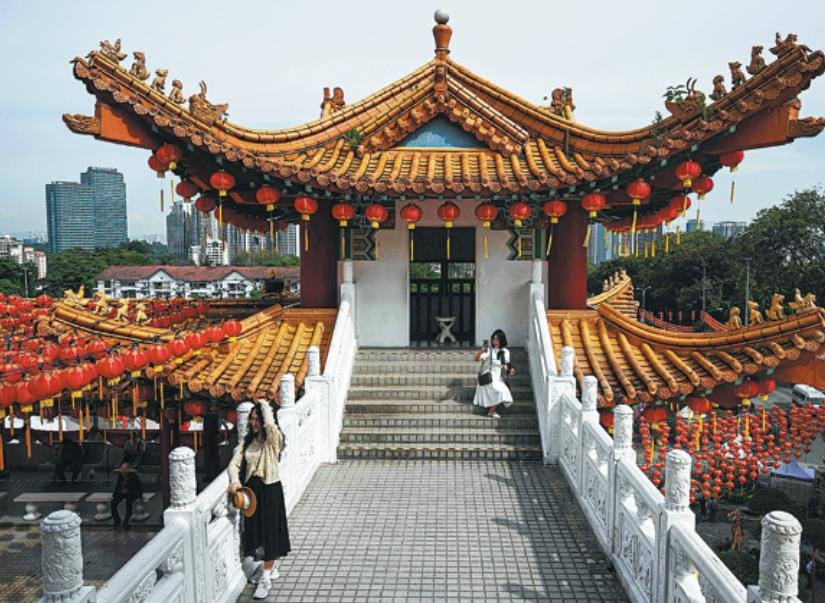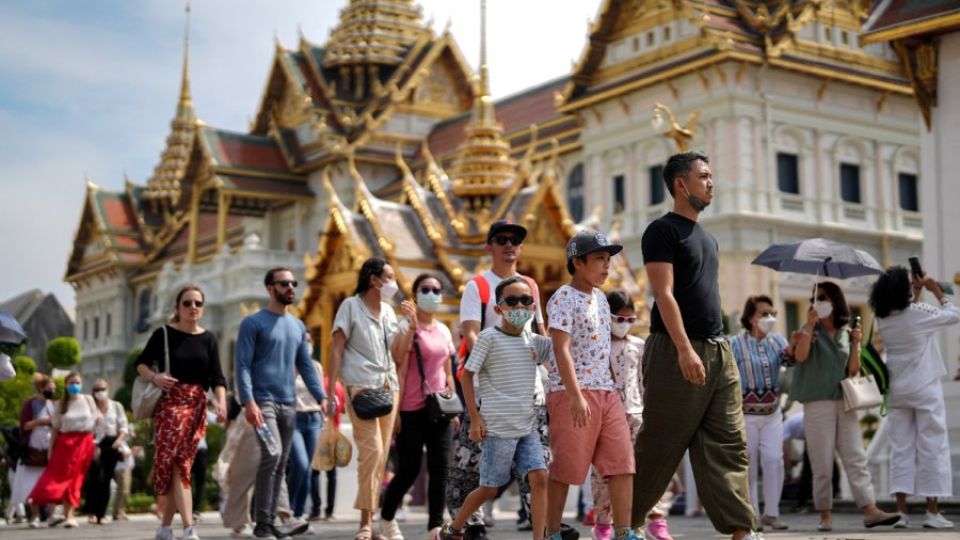January 10, 2023
BANGKOK – To people in Thailand and across Southeast Asia, news of China changing its COVID-fighting measures means more incoming visitors and better economic recovery ahead.
On Jan 8, following an announcement late last month, China lifted mandatory quarantine for cross-border travelers after adjusting other COVID-19 control measures, giving impetus for outbound tours. International travelers will no longer have to undergo quarantine or take a nucleic acid test when they arrive in China.
Yuthasak Supasorn, governor of the Tourism Authority of Thailand, said the tourism sector is gearing up for the return of Chinese visitors.
During a meeting with Thailand’s Prime Minister Prayut Chano-cha last week, Supasorn said about 300,000 Chinese visitors will arrive in the first three months of the year, helping to boost tourism during the low season.
Tanes Petsuwan, TAT deputy governor for international marketing, Asia and South Pacific, said many Chinese were coming to Thailand even though Chinese travelers may not represent Thailand’s top tourism market, as they did in 2019.
“We have not imposed any updated measures specifically for Chinese travelers who are entering Thailand,” Tanes said.
Thailand “will not discriminate against tourists from China by subjecting them to specific anti-COVID requirements”, the country’s Public Health Minister Anutin Charnvirakul said recently.
On Friday, Thailand announced new COVID-related measures that require any incoming travelers to show proof of at least two doses of COVID-19 vaccination. The public health ministry also recommended that travelers buy health insurance covering COVID treatment during their stay in the country.
The new measures were announced a day after Thai ministries of public health, transportation, tourism and sports, as well as executives of several state agencies, met. The nondiscriminatory measures were confirmed by interviewees at the Bangkok airport and local centers on Sunday.
Thailand fully reopened to international tourists on Oct 1.
“Over these two months it has been proven that our country can keep the pandemic situation under control,” Tanes said. “At the same time we can successfully reopen the country, boost the economy and bring life back to normal.”
Thailand’s Finance Minister Arkhom Termpittayapaisith is also optimistic. Xinhua News Agency quoted him as saying that China’s gradual restoration of its citizens’ overseas travel and other favorable factors could boost Thailand’s tourism, its key economic growth contributor, pushing the economy to grow 3.8 percent this year.
Gearing up

A tourist takes pictures on Tuesday with the red lantern decorations at the Thean Hou Temple in Kuala Lumpur, Malaysia, ahead of Chinese New Year celebrations, which mark the Year of the Rabbit. MOHD RASFAN/AFP
In fact, all of Southeast Asia is gearing up for more incoming Chinese travelers. Teo Yik Ying, dean of the Saw Swee Hock School of Public Health at the National University of Singapore, said Singapore has a high vaccination rate and does not need to impose additional travel regulations on Chinese tourists.
In Malaysia, which is screening the temperatures of all arriving travelers according to health rules updated late last month, Reuters quoted the Prime Minister, Anwar Ibrahim, as saying: “We are not taking the stance of discriminating (against) any countries.”
K.L. Tan, president of the Malaysian Association of Tour and Travel Agents, said: “Outright calls to shut our borders to Chinese travelers at this very early stage are irrational and irresponsible.”
The local portal TTG Asia quoted Tan as saying the association “has complete faith in the Ministry of Health of Malaysia in managing Chinese arrivals just as they have done with other travelers from all over the world”.
Fathir Badri Alhadad, president of the Solidarity Association For Travel and Tours Agency Malaysia, said the country needs to consider the importance of how China can help rebuild its economy before imposing any bans, adding that Malaysia needs Chinese investors to further develop its national economy.
The region is home to many tourism-reliant economies in which the Chinese used to account for the bulk of visitors to beach resorts, luxury malls and casinos that have all been hit hard by their absence over the past three years.
Xu Weiwei in Hong Kong and Xinhua contributed to this story.


